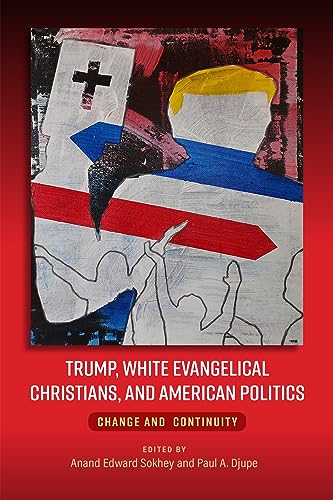

Most ebook files are in PDF format, so you can easily read them using various software such as Foxit Reader or directly on the Google Chrome browser.
Some ebook files are released by publishers in other formats such as .awz, .mobi, .epub, .fb2, etc. You may need to install specific software to read these formats on mobile/PC, such as Calibre.
Please read the tutorial at this link: https://ebookbell.com/faq
We offer FREE conversion to the popular formats you request; however, this may take some time. Therefore, right after payment, please email us, and we will try to provide the service as quickly as possible.
For some exceptional file formats or broken links (if any), please refrain from opening any disputes. Instead, email us first, and we will try to assist within a maximum of 6 hours.
EbookBell Team

4.1
60 reviewsIn Trump, White Evangelical Christians, and American Politics, political scientists Anand Edward Sokhey and Paul A. Djupe bring together a wide range of scholars and writers to examine the relationship between former President Donald Trump and white American evangelical Christians. They argue that, while this relationship―which saw evangelicals supporting a famously unfaithful, materialistic, and irreligious candidate despite self-defining in opposition to these characteristics―prompted many to wonder if Trump himself transformed American evangelical religion in politics, this alliance reflected both change and the outcome of dynamics that were in place or building for decades.
Contributors contextualize the Trump presidency within the story of religious demographic change, the growth of politicized religion, nationalistic religious expression, and the ways religion and politics in the United States are enmeshed in the politics of race. These investigations find that the idea of religious “transformation” is not accurate. Instead, the years 2015 to 2022 saw mainly minor changes to the ways religion appeared in public life―but these changes ultimately complemented and advanced an existing white evangelical strategy to increase political and social power as they became a demographic minority in the United States. Taken together, this collection reveals new insights for readers seeking to understand the religious dimensions of Trump’s rise, the reasons evangelicals become political activists, and the multifaceted alliances between secular politicians and conservative religious subcultures.
Contributors: Abraham Barranca, Ruth Braunstein, Ryan P. Burge, David E. Campbell, Jeremiah J. Castle, Paul A. Djupe, John C. Green, Sarah Heise, Geoffrey C. Layman, Andrew R. Lewis, Gerardo Martí, Eric L. McDaniel, Napp Nazworth, Shayla F. Olson, Enrique Quezada-Llanes,
…